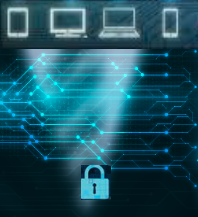I came across a job ad for a security integration of softwarehouse security systems.
The announcement details include very specific requirements. And it shows to what extent a physical security systems integrator must surf on IT.
That’s why in many companies, physical security is placed in the hands of the IT department.
The job ad inspired this article in which I will show you what technical knowledge a security system integrator will use in carrying out his tasks.
In the ad I read :
- Prior experience deploying and supporting an enterprise networked environment is required.
- Ability to deploy and support Stratus® everRun for high availability and Stratus ARCserve.
- And good experience in installing and administering Stratus.
(To be honest, I looked on the internet about Stratus. I didn’t know about it before ☺️😂😂)
In other words, in addition to the programming tasks of the security system itself. Which consists of programming access levels. As well as the management of users and access card holders. The integrator has also in his tasks the deployment and administration of servers and the corporate network.
I had installed a system with redundancy. where I had configured the LACP servers. This technique was completely unknown to me before this project.
Also in another project, we deployed Genetec system. We had installed a redundant system with 9 servers. With databases on VMs and a Windows always on system whose installation was entrusted to an IT specialist contractor.
As a conclusion
Deploying security systems and security systems integration could be complex. Particularly in large sites.
The size of the system or the security requirements can lead to the deployment of highly specific IT techniques. For example, installations and deployment of systems on virtual machines, redundant systems with several servers and/or several switches. The installation and maintenance of these systems require extensive computer knowledge. Security system integrators must include this knowledge in their skills
